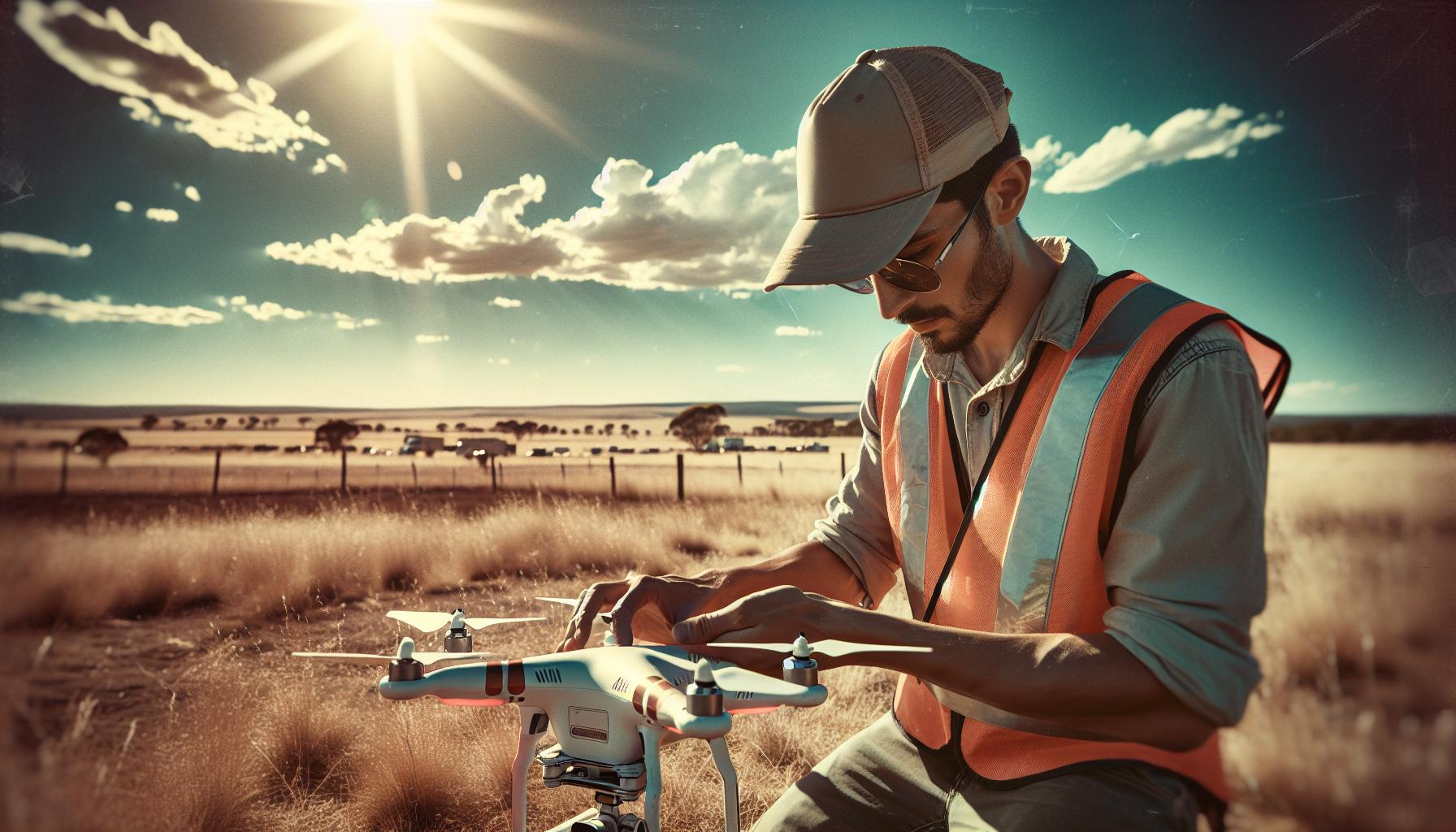As drones continue to revolutionise industries from agriculture to filmmaking, the demand for skilled operators is skyrocketing. Professional drone training from providers like iDronetrain equips individuals with essential skills that not only enhance their employability but also open doors to exciting career opportunities. This article explores the key competencies gained through professional training and highlights why mastering these skills is crucial in today’s tech-driven world.
Key Takeaways
- Professional drone training enhances critical flight operations skills, ensuring safe and efficient navigation in various conditions.
- Participants gain vital regulatory knowledge, including airspace classifications and compliance with local aviation laws.
- Training fosters technical proficiency with drone components and operational software, enabling effective troubleshooting and performance optimisation.
- Skills in photography and videography are developed, allowing operators to capture high-quality images and videos for diverse applications.
- Trainees learn data analysis techniques for processing aerial data, crucial for sectors such as agriculture and surveying.
- The training emphasises teamwork and communication, essential for successful collaboration on drone projects across industries.
What Skills Can You Learn from Professional Drone Training?
Professional drone training equips individuals with a range of essential skills, enabling them to operate drones effectively across multiple sectors. Key skills include:
- Flight Operations: Participants learn to control drones, ensuring safe and efficient navigation. Mastering take-off, landing, and manoeuvring in various conditions forms a core component of training.
- Regulatory Knowledge: Understanding local aviation regulations is crucial. Training provides insights into legal requirements, airspace classifications, and safety protocols.
- Technical Proficiency: Operators gain familiarity with drone components, including cameras, sensors, and software. This knowledge aids in troubleshooting and optimising drone performance.
- Photography and Videography: Training includes the technical aspects of capturing high-quality images and videos. Participants learn framing, lighting, and editing techniques tailored to specific applications in industries like real estate and filmmaking.
- Data Analysis: Drones are valuable for data collection. Trainees acquire skills in processing aerial data for applications in agriculture, surveying, and environmental monitoring.
- Problem-Solving: Operators develop critical thinking to address challenges during flight. This skill enhances their ability to respond swiftly to unpredictable situations.
- Teamwork and Communication: Many drone projects involve collaboration. Training fosters effective communication and teamwork, essential for project success.
Professional drone training not only provides operational skills but also prepares individuals for careers in rapidly expanding fields, such as aerial photography, agricultural monitoring, and infrastructure inspection.
Technical Skills

Professional drone training enhances technical skills essential for effective drone operations. Trainees learn various aspects of flying drones, maintaining equipment, and utilising technology efficiently.
Flight Operations
Flight operations encompass essential techniques for controlling drones in varied environments. Trainees develop skills in pre-flight checks, flight planning, and executing safe manoeuvres. They gain experience in managing drone altitude, speed, and direction, ensuring compliance with airspace regulations. Understanding the principles of aerodynamics and weather impacts also forms a crucial part of this training.
Equipment Management
Equipment management focuses on maintaining and troubleshooting drones and their components. Trainees learn to operate different types of drones, understand their specifications, and implement necessary maintenance protocols. Familiarity with software used for drone operation, including flight control systems and data processing tools, is covered. This expertise ensures efficiency, safety, and longevity of the equipment, allowing operators to maximise performance during flight operations.
Safety Protocols
Adhering to safety protocols is crucial in professional drone training. These standards ensure safe operations, minimising risks associated with drone flying.
Risk Assessment
Risk assessment involves identifying and evaluating potential hazards before flight. Trainees learn to assess environmental conditions, including weather patterns and obstacles. Understanding airspace regulations is essential; operators must recognise no-fly zones and restrictions affecting flight paths. Comprehensive risk assessment practices help mitigate accidents, ensuring that operators can make informed decisions.
Emergency Procedures
Emergency procedures focus on responding effectively to unexpected situations. Trainees undergo simulations that encompass various emergency scenarios, such as equipment failure or loss of control. They learn to execute recovery techniques, including emergency landings and return-to-home functions. Knowledge of emergency protocols enables operators to maintain safety and control, reducing the likelihood of accidents during critical situations.
Regulatory Knowledge
Understanding regulatory knowledge is essential for professional drone training. Training programmes provide comprehensive insights into the rules and laws governing drone operations, ensuring safe and legal usage.
Airspace Regulations
Professional drone training covers airspace regulations, which dictate where drones can be flown. Operators learn to identify controlled airspace and no-fly zones that restrict drone activity, such as military bases and airports. Knowledge of altitude limits specific to different types of airspace enables safe navigation and compliance with legal standards. Proper understanding of these regulations reduces the risk of unintentional violations, which can result in penalties or accidents.
Licensing Requirements
Training programmes also outline the licensing requirements necessary for drone operation. Operators must obtain specific certifications based on the intended use, whether recreational or commercial. In many regions, certification requires passing examinations that test knowledge of air legislation, operational safety, and technical requirements. Adhering to licensing stipulations ensures operators meet industry standards, enhancing professionalism and accountability in drone usage.
Applications of Drone Skills
Professional drone training opens numerous applications across multiple sectors. Mastery of drone skills enhances employability and enables individuals to contribute effectively in their chosen fields.
Aerial Photography
Aerial photography involves capturing images from the air using drones. Trainees learn advanced photographic techniques, including composition and lighting, tailored specifically for drone operation. Understanding camera settings, such as ISO, shutter speed, and aperture, is crucial for maximising image quality. Additionally, operators gain knowledge of post-processing tools to enhance photographs further. This skill is essential in industries like real estate, journalism, and event documentation, where high-quality visuals are vital.
Surveying and Mapping
Surveying and mapping using drones streamline data collection and analysis for various projects. Trainees become proficient in creating high-resolution aerial maps and 3D models. Understanding geospatial data, GPS integration, and software for mapping applications is key. Drones facilitate accurate land surveys in construction, agriculture, and environmental monitoring, reducing the time needed for traditional methods. This capability underscores the importance of drone skills in improving efficiency and accuracy across industries.
Conclusion
Professional drone training provides individuals with a comprehensive skill set that’s invaluable in today’s job market. By mastering flight operations regulatory knowledge and technical proficiency they position themselves for success in diverse industries. The ability to analyse data communicate effectively and adhere to safety protocols further enhances their employability.
As drones continue to evolve and their applications expand the demand for skilled operators will only increase. Investing in professional training not only opens doors to exciting career opportunities but also ensures operators can navigate the complexities of this rapidly advancing technology. Embracing these skills is essential for anyone looking to thrive in the drone industry.
Frequently Asked Questions
What is professional drone training?
Professional drone training equips individuals with essential skills for effective drone operation across various sectors. It covers areas like flight operations, regulatory knowledge, technical proficiency, and safety protocols, preparing trainees for careers in industries such as agriculture and filmmaking.
Why is there a growing demand for drone operators?
The increasing adoption of drones across various industries, including agriculture, filmmaking, and infrastructure inspection, has created a high demand for skilled drone operators. This trend is further driven by technological advancements and the need for efficient data collection and monitoring solutions.
What skills are developed through drone training?
Drone training develops several key skills, including flight operations, data analysis, technical proficiency in drone equipment, photography and videography techniques, problem-solving, and effective teamwork and communication. These skills enhance employability in rapidly changing job markets.
How important are safety protocols in drone training?
Safety protocols are crucial in drone training as they minimise risks associated with flying. Trainees learn to conduct risk assessments, understand airspace regulations, and practice emergency procedures, ensuring safe and responsible drone operation.
What regulatory knowledge do drone operators need?
Drone operators must understand the rules and laws governing drone usage, such as identifying controlled airspace, no-fly zones, and altitude limits. Regulatory knowledge ensures compliance with legal standards and enhances overall safety.
Can drone training lead to new career opportunities?
Yes, professional drone training opens up new career opportunities in various fields such as aerial photography, agricultural monitoring, construction surveying, and environmental monitoring. Mastery of drone skills significantly boosts employability in these thriving sectors.
What technical skills are enhanced during drone training?
Drone training enhances technical skills related to flight operations and equipment management. Trainees learn about pre-flight checks, flight planning, aerodynamics, weather impacts, maintenance, and troubleshooting of different drone types, ensuring effective and safe operation.

